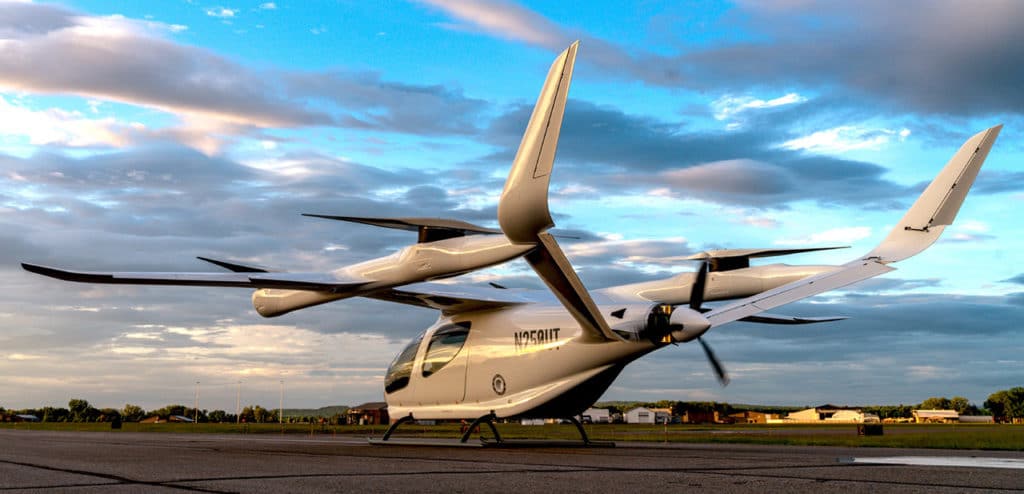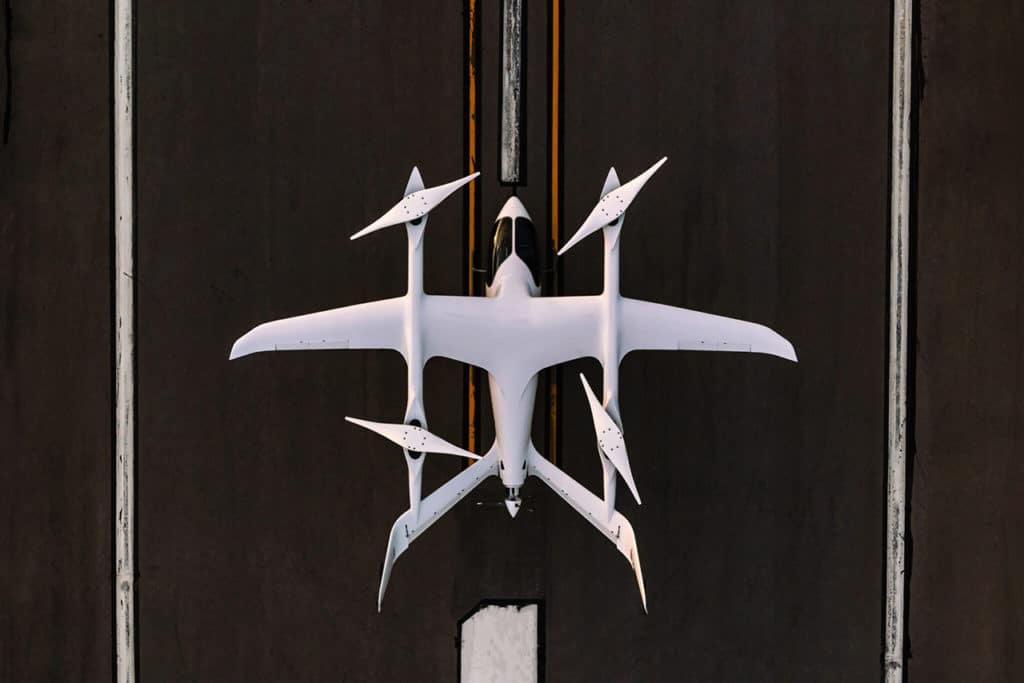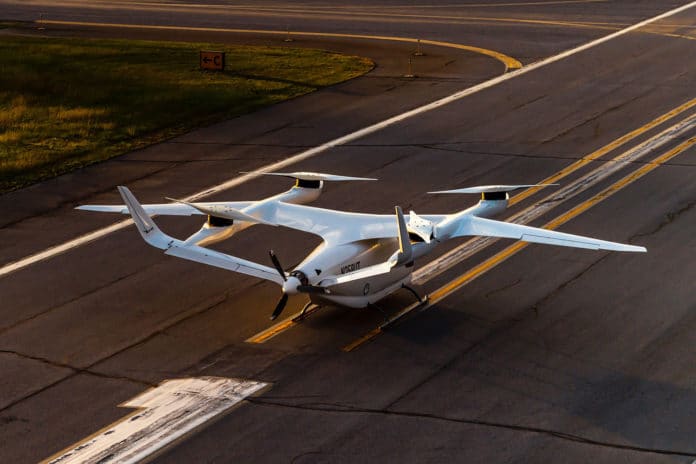The concept of eVTOL (electric vertical take-off and landing) passenger aircraft has been around for years, but most prototypes are still at the concept stage.
Vermont-based startup Beta Technologies has developed an electric aircraft specifically for the United Therapeutics biotechnology laboratory, which grows artificial organs for transplantation. Code-named ALIA, the electric VTOL aircraft, has already received a certificate of airworthiness, and the testing of ALIA is underway.
The unique aircraft has a design that is not at all like what we have seen before in the world of aircraft. ALIA has many features inspired by the appearance and flight skills of the ultra-efficient Arctic tern. With an impressive split tail at the end, long curved metal wings on the sides, and a propeller at the rear, this prototype promises to become the future of aviation when it comes to cargo transportation and air taxis.

It uses four horizontal propellers to take off from a standstill. They also allow ALIA to slowly descend to the ground, while the wings are responsible for horizontal flight in the sky.
ALIA’s performance specifications have not been announced yet. But the startup promise that the commercial version will provide flights over a distance of more than 400 km and the possibility of charging it in less than an hour. The wingspan of this aircraft is 15.2 meters, and the maximum take-off capacity today is 2,722 kg, with a cargo volume of no more than 5.7 cubic meters.

The batteries are installed at the bottom and create a center of gravity, as well as provide additional resistance to wind gusts and turbulence. The eVTOL aircraft is also capable of carrying passengers: for this, six seats can be installed in the cabin, including a seat for the pilot.
In addition to United Therapeutics, Beta Technologies is in talks with the U.S. Air Force, which has commissioned several ALIA prototypes for the Agility Prime program to stimulate commercial development of aircraft.
The startup also plans to create a network of fast-charging stations for eVTOL aircraft. The stations will consist of solar panels, energy storage modules and generators for charging from the grid, in case of high demand during rush hour or power outages. Restrooms for pilots will be equipped in such places.
